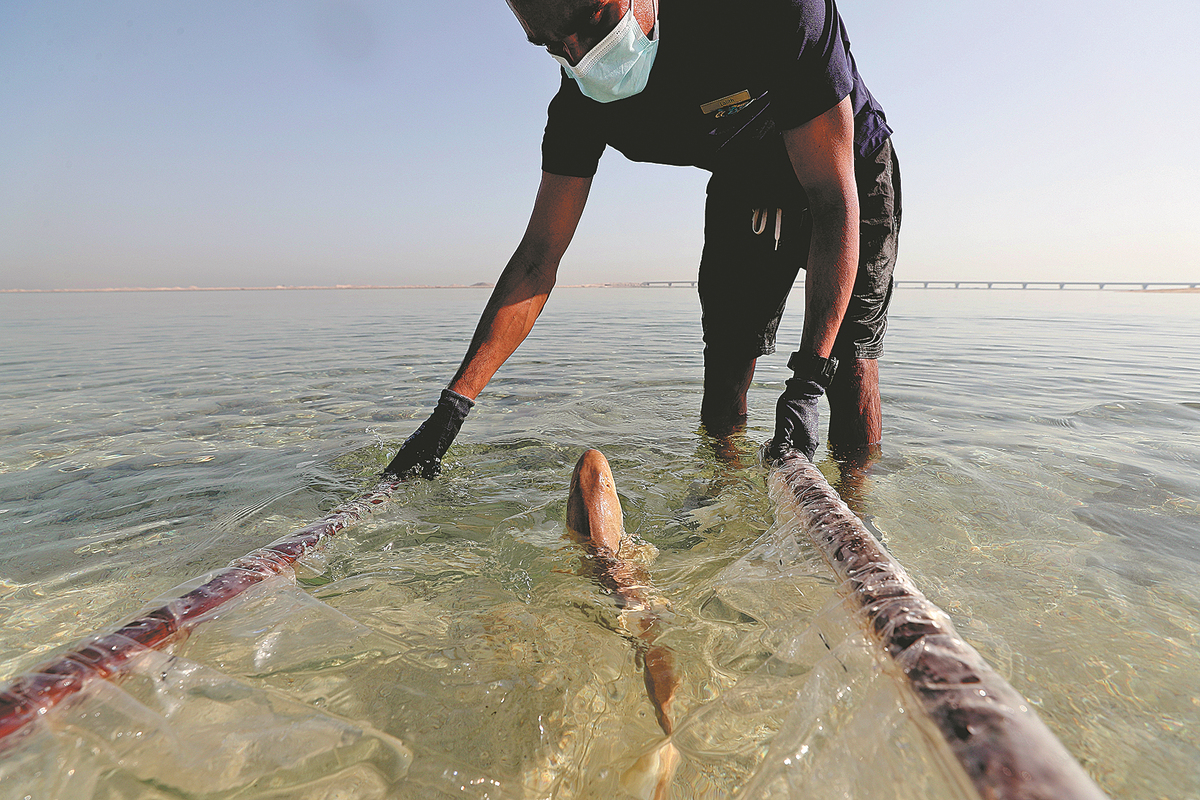Blue bonanza beckons for Gulf


Sustainable activities
It measures the degree to which economies are giving priority to protecting ocean health through sustainable marine activity, blue innovation and policy implementation.
In the overall rankings, the UAE placed 25th, Saudi Arabia 42nd, Kuwait 55th and Qatar 63rd.
Crepaldi said a combination of factors is considered when selecting country economies for inclusion in the rankings, but two are preeminent, the size of the country's GDP, and the relative importance of the country's maritime economy to the global ocean economy and ecology. The world's top 78 economies, which collectively represent 98 percent of the global economy, were selected, he said.
"Four of the six GCC economies are included in the (rankings), the region's four largest, Qatar, Saudi Arabia, Kuwait and the UAE, which we feel provides an overall representation of the region's blue economy contributions. Only the two smallest GCC countries, Bahrain and Oman, are not included."
Khayati of Bahrain said Bahrain includes dozens of islands with a coastline of 161 kilometers. However, despite these components and capabilities, the blue economy remained an area that was only partially exploited, and investment projects in it remained relatively limited.
In this context, he said, it is clear that some of these sectors in Bahrain have barely grown at all, while others, "even if they have achieved varying leaps", still undoubtedly have opportunities to improve and develop.
Nadim Farajalla, director of the Climate Change and Environment Program at the Issam Fares Institute for Public Policy and International Affairs in Beirut, said it is not too expensive to invest in the blue economy, but it is extremely expensive to protect the shoreline.
"Most expansions and artificial growth into the development of urban areas are at the expense of coastal zones and building into the sea artificial lands."
Farajalla cited Bahrain, the UAE, Saudi Arabia, and Qatar as examples of countries building into the sea, which he said needs to be managed better, with more respect given to coastal zone and coastal zone management.
The blue economy's growth would depend mainly on building appropriate economic and legislative frameworks, Khayati said.
"The economic framework is concerned with providing incentives, while the legislative framework is concerned with creating nurturing laws and rules. Economic instruments such as taxes, subsidies and fees should aim to accommodate the environmental aspect, social benefits, costs and risks to society."
In addition, he said, supporting the blue economy would achieve important goals at this stage, including supporting the private sector's contribution to production and creating more of the desired economic diversification.
Sultan Al Jaber, the UAE's special envoy for climate change and minister of industry and advanced technology, said the Emirates sees the blue economy "as a practical and economically viable option for countries looking for ways to become carbon neutral", and at the same time building resilience and protecting biodiversity.
The UAE's strategy, he said, is based on several factors, including innovation, research and development, and to this end collaboration and partnership with academic institutions and universities.
It is hoped this approach will "foster the creativity needed to build and grow this sector", he said.
"We are already making progress. At COP 26 we committed to planting 100 million mangroves by 2030, which is one of the world's largest mangrove planting programs. (COP 26 refers to the United Nations Climate Change Conference of the Parties held in Glasgow, Scotland, last year.) Not only do mangroves reduce carbon emissions, but they are also critical natural habitats for sea life, and the trees will also protect UAE coasts from rising sea levels and storms."
























